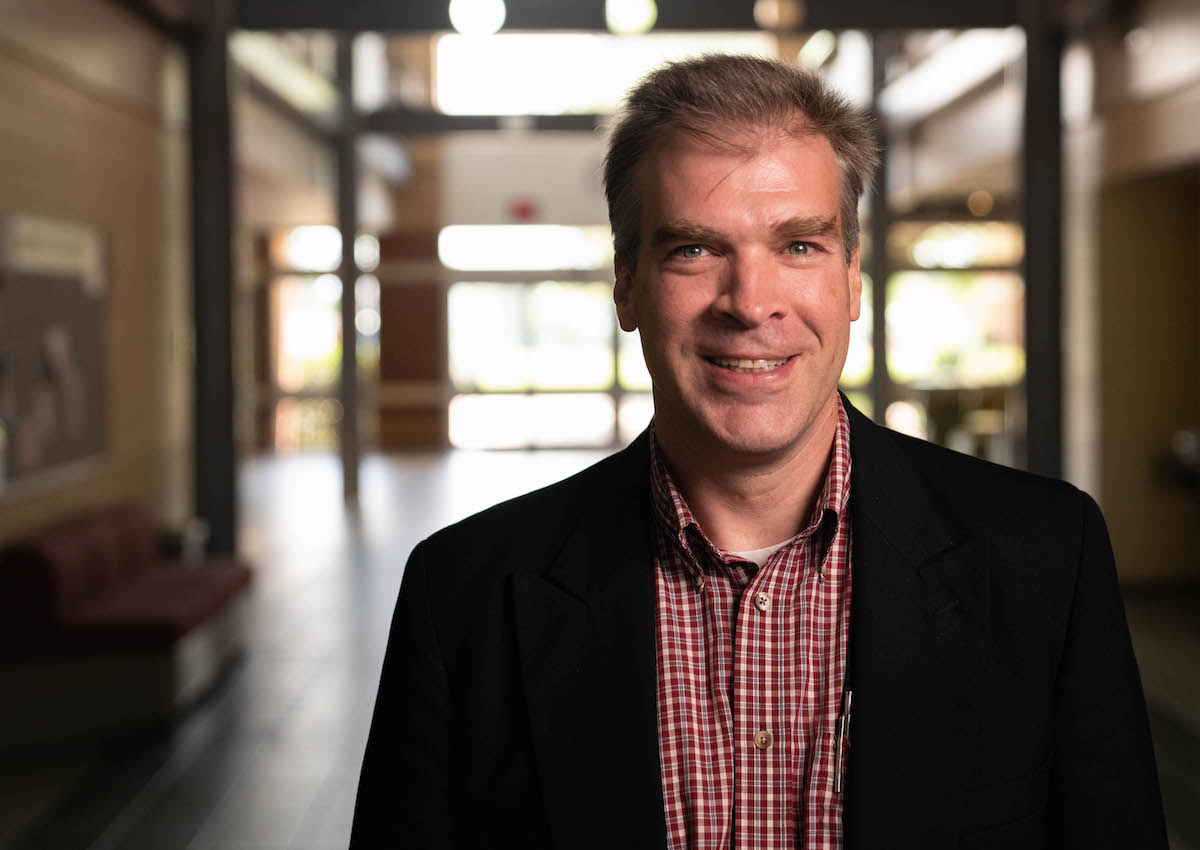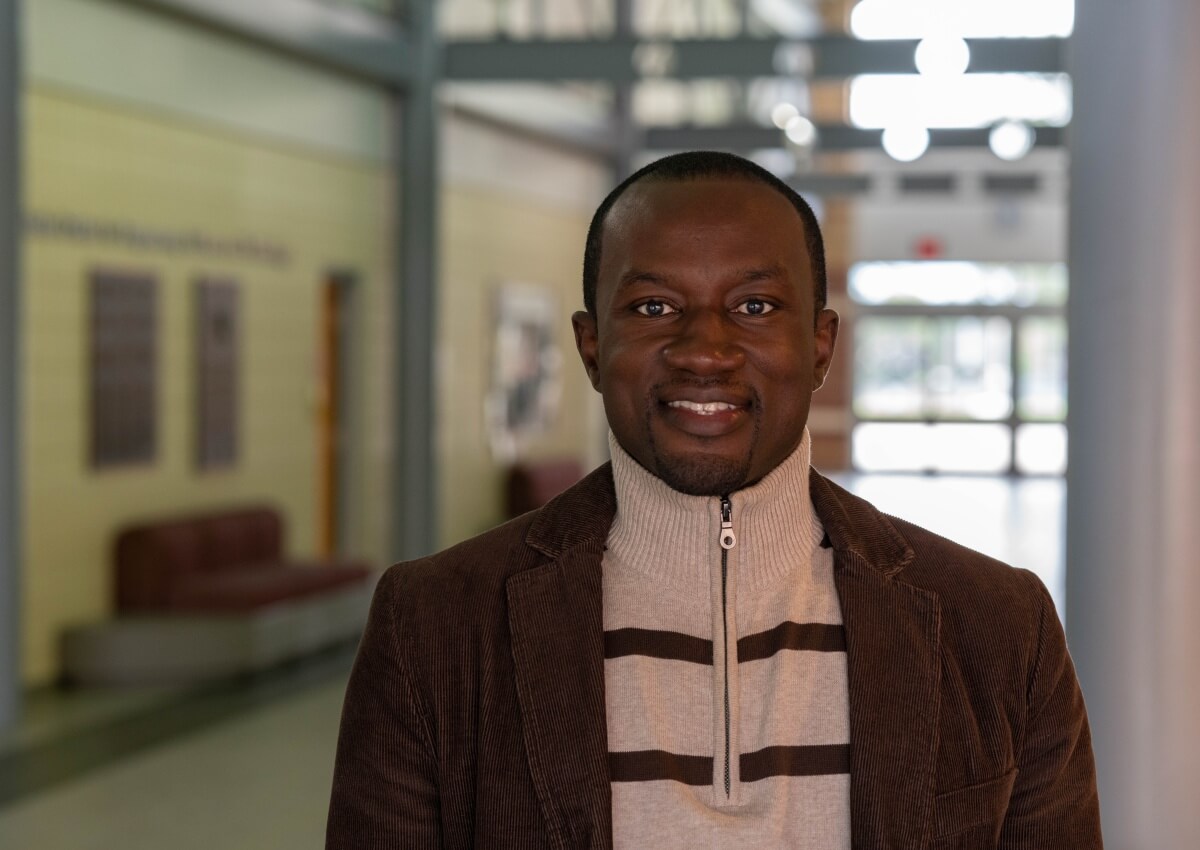
Learn more about the 2024 Seniors' success
The Bachelor of Science in Civil Engineering at LeTourneau University has a total curriculum of 128 semester hours. Students can choose between a general civil engineering degree, a focus in structural engineering, a focus in water resources engineering, or a concentration in environmental engineering.
The Bachelor of Science in Civil Engineering, including the concentration in Environmental Engineering, is accredited by the Engineering Accreditation Commission of ABET, https://www.abet.org.
What are my degree options?
The Bachelor of Science in Civil Engineering (BSCE) degree offers a broad exposure to a variety of civil engineering topics and 14 different electives in areas that most interest you.
Students have the choice of taking a broad selection of these electives or focus on specific areas including:
- Structural Engineering Focus
- Water Resources Engineering Focus
- Environmental Engineering Concentration
To learn more about course requirements
- view program details in our current catalog
- see our most recent suggested course sequence
- view the list of approved electives for this degree
For students interested in quickly advancing their career, LeTourneau also offers a 4+1 program where a student can complete both their BSCE and a Masters degree in only 5 years. Both a coursework-based Master of Engineering degree and a thesis-based Masters of Science in Engineering degree can be pursued with the 4+1 program.
What courses could I take?
Civil engineering involves working within many different fields, so a civil engineering education includes a broad range of courses. Some examples of interesting courses you will take while earning a civil engineering degree at LeTourneau University include:
- Civil Engineering Materials - learn about material science, testing standards, as well as an introduction to working with steel, aggregates, concrete, and wood materials
- Civil and Environmental Engineering Project Management - learn about business and management principles, and work on estimating and planning a real-world project for a local engineering firm
- Sustainability and Stewardship - learn about professional responsibilities regarding sustainable practices, particularly in the context of the unique calling to care for God's creation
- Hydraulic Analysis - learn incompressible fluid mechanics and applications to water systems, including fluid statics, pipe networks, pumps, channels, and flow measurement
- Structural Analysis - learn to analyze structural trusses, beams, and frames for bridge and building applications using traditional methods and analysis software
- Environmental Engineering - learn about water and wastewater treatment, air and water pollution, solid and hazardous waste, and quality testing standards
- Geotechnical Engineering - learn about physical and mechanical properties of soils along with soil testing standards for earthwork and foundation applications
- Your choice of many elective courses - steel design, concrete design, wood design, groundwater hydrology, surface water hydrology, water and wastewater design, transportation engineering, construction engineering, introduction to surveying, and more!
What projects could I work on?
We believe that learning in the classroom is most effective when coupled with practical and hands-on experiences. Our students work on unique and challenging engineering projects from their first semester all the way through the completion of their civil engineering degree. A few examples of projects in recent years include:
- Cantilever bridge design project - Freshman students work in teams of four to build 20-ft bridges out of wood and steel cables, then test their strength by loading them with up to 1500 lbs.
- Concrete mix design project - Sophomore students work in pairs to follow national design standards to develop a concrete mix to specifications, then produce and test concrete cylinders and beams to evaluate their designs.
- Water treatment project - Junior students work in small groups to design, build, and test a water treatment system capable of autonomously treating 100 gallons of Sabine River water to produce potable water.
- Senior design project - All senior engineering students spend two semesters working on a capstone engineering design project. Recent civil engineering projects have included the hydraulic design of a recreational lazy river, development of a 3D-printing concrete tool, and participation in a disaster relief shelter design competition. Find out more about our senior design projects at LeTourneau University!
- ASCE Competitions - Organized by the American Society of Civil Engineering, LeTourneau Civil Engineering students have competed in the Timber-Strong and Steel Bridge competitions. LeTourneau's Timber-Strong team recently achieved a three-peat, winning first place at the ASCE Student Symposium Region 6 in 2022, 2023 and 2024.
What do Civil Engineering Laboratories look like at LeTourneau?
We believe the best learning happens when we are hands-on with the concepts. Our Civil Engineering labs are set up to support applied learning in our over 9,800 ft2 indoor facilities, including:
Civil Engineering students also work in the Kielhorn Welding Engineering Lab, Machine Tool and Design Lab, and the Glaske Center for Engineering, Science and Technology.
Learn more about LeTourneau's Engineering Labs
What can you do with a civil engineering degree?
With a civil engineering degree, graduates may choose from a number of industry career options. A few possible career choices include:
- Civil Engineering Consultant
- Construction Engineer
- Structural Engineer
- Project Manager
- Water Resources Engineer
- Environmental Engineer
- Geotechnical Engineer
- Transportation Engineer
- Public Health Engineer
- City/County Engineer
Some current statistics include:
|
2023 Median Pay |
$95,890/year |
|
Typical Entry-Level Education |
Bachelor's degree |
|
Number of Jobs, 2023 |
341,800 |
|
Employment Change, 2023-33 |
+22,100 (+6%) |
Read more about Civil Engineering at the U.S. Bureau of Labor Statistics
Some students desire to specialize in one or more fields of civil engineering and choose to attend graduate school after the completion of their undergraduate degree. To find out more about the jobs and graduate schools our students have gone to, check out the LeTourneau University Career Advantage.
Welcome from Civil Engineering Chair Dr. Darryl Low
Chair of the Department of Civil Engineering Dr. Darryl Low introduces Civil Engineering at LETU, The Christian Polytechnic University.
Learn more about Civil Engineering at LETU:
Check out the Engineering Labs Virtual Tour:
More from LETU Engineering & Engineering Technology:
How do I learn more?
Schedule a visit to campus! You'll be able to tour our Longview campus, see our Engineering Labs, and talk with a Civil Engineering Faculty member. You can schedule an individual tour at https://www.letu.edu/visit



